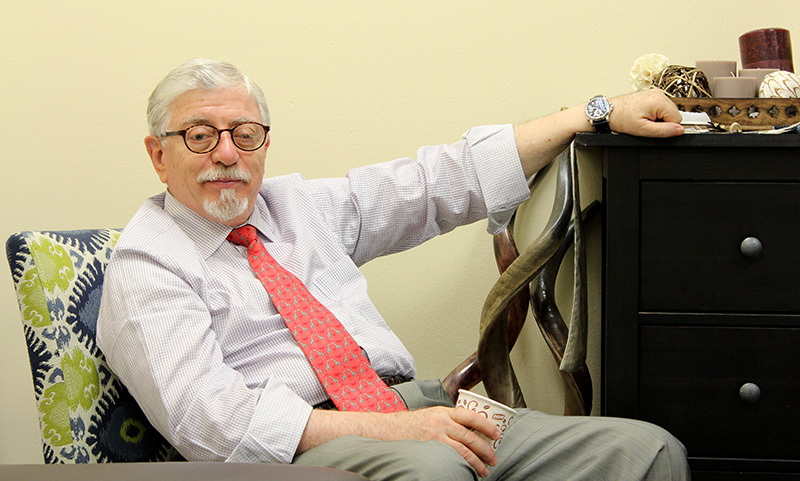
"Where do we come from? What are we doing here? And what will happen to us?"
These are the three questions that all religions attempt to answer, according to Joseph Shulam, director of Netivyah Ministries. Shulam was invited to speak at a seminar from July 24 to 26 at United Breakthrough Ministries (UBM), a Korean church located in Anaheim, CA, that has a particular focus on doing mission work in Israel.
During the second day of the three-day seminar, Shulam aimed to answer those three questions from his perspective to the approximately 100 pastors and lay Christians present.

Some 100 pastors and lay Christians attended the seminar at United Breakthrough Ministries from July 24 to 26.
To put it simply, in addressing the first question -- "Where do we come from?" -- Shulam said, "We are all children of God -- all human beings of all races."
In Jewish culture, Shulam explained, children are told from a young age, "You will succeed," "You are capable," "Do your best," "You are chosen by God," "He gave you the law to be a light in the world," "God will use you," and "You're special and made in His image."
"Tell your children these things," Shulam encouraged parents in the audience.
To answer the second question, "What are we doing here?", Shulam said, "We are doing God's will, serving God, being used by God -- that's our job." He emphasized that serving God and being used by God are not limited to ministerial work, such as being in clergy or being a missionary, but that "making clothes, or being a mechanic" and all the various professions are still ways through which God can use an individual.
Finally, Shulam said, after this life, "We will all stand in judgment," in answering the third question: "What's going to happen to us?"
"Jesus taught, 'To whom much as been given, much will be required,'" he continued, and said that all will have to give an account to God on their lives.

Joseph Shulam, the director of Netivyah Ministries, spoke on God, man, and sin at a recent seminar in Anaheim, CA.
But of these three questions, Shulam spent extensive time answering the first, during which he challenged what he called "Roman Catholic doctrine" passed on to evangelical Christianity. As he explained that "we come from God," he challenged the notion that people are generally bad, or evil. Instead, he said, "People are generally good."
"Roman Catholic doctrine tells us that flesh is bad; that we can never be good; that we will always depend on grace; and that whatever we do is worthless because nothing we do can be righteous," Shulam said.
"According to the Bible, God created everything good, including humans," he continued. "We are generally good. Our instinct is to be good."
"God doesn't create failures or defective people ... Man is the crown of God's creation. We are all sinners and make mistakes, but that doesn't mean we are evil."
Shulam went on to quote a verse that he said is often used by Christians to say that people are born in sin: "Surely I was sinful at birth, sinful from the time my mother conceived me," said King David in Psalm 51:5.
"We can't say from this text that all humankind was born in sin," Shulam said, explaining that David's context has to be considered -- that this Psalm was written after he was confronted by Nathan the prophet after committing adultery with Bathsheba; and that David 's family life is shrouded in mystery.
"When Samuel tells Jesse to bring his sons, he [Jesse] only excludes David," he explained, suggesting that David's birth may have been associated with a sinful relationship.
Some of those who were present at the seminar took issue with some of Shulam's claims. One pastor pointed to Romans 5:12, and asked what Shulam thought of original sin.
Shulam responded that from Adam, all humans have inherited "the gene of the ability to sin," but not the guilt for Adam's sins. "We die for our sin, not Adam's sin. I'm guilty only for my sins, and not Adam's," he said.
During this three-day seminar series, Shulam focused on God during the first day, man on the second, and sin and atonement on the third, and aimed to focus on what most consider "the basics" of the Christian faith. This was Shulam's second time being invited to UBM to speak. Shulam was invited last year as well, at which time he spoke about the role of the church in Asia in the body of Christ.
Shulam studied Biblical Archaeology and Bible at Hebrew University, and the New Testament and Chemistry at David Lipscomb University. He also has written several commentaries and lectured in various places all over the world, including Korea, Brazil, Egypt, Japan, China, Switzerland, France, and Italy, among others.


















